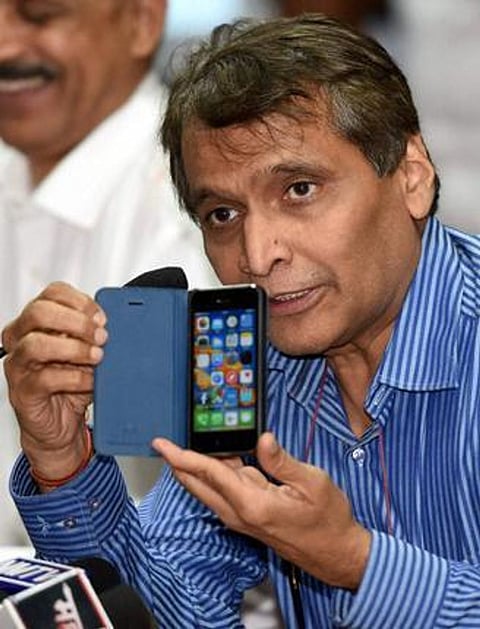
- Union Budget 2026
- Home
- NewsGram USA
- India
- न्यूजग्राम
- World
- Politics
- Entertainment
- Culture
- Lifestyle
- Economy
- Sports
- Sp. Coverage
- Misc.
- NewsGram Exclusive
- Jobs / Internships

By Sreyashi Mazumdar
Muslim personal law has always been a travesty owing to the multifaceted interpretations of Quran. Unlike Hindu personal law which has got a constitutional sanction, Muslim laws draw its relevance from the variegated inferences of Quran; thereby making issues like marriage, divorce and property rights incoherent. Talaq or divorce is one such contentious issue that has borne manifold views on the same.
Talaq, talaq, talaq– these three words like a missile wield the capability of juddering one's destiny or reconciling long drawn wranglings. Unlike a marriage under the Hindu law, Muslim marriage lacks a legal sanction owing to which the tenacity of the marriage remains uncertain.
According to the widely accepted interpretation of Quran, the husband in a wedlock enjoys the sole right to terminate the marriage as and when he wishes to. A mere announcement of the three words marks an end to the marriage "There are two kinds of talaq, ek talaq and teen talaq. Under ek talaq what happens is that if the husband says talaq once, he still has a option of taking it back within a period of three months.
On the contrary, in case of teen talaq, once the husband sounds out talaq thrice then there is no scope for retrieval of the decision," Mufti Afroz Azam Qasmi, member of All India Imam Organization sheds light on the Shari'a law of talaq. "Though there are Maulvis who look into the prudery of the case, the patriarchal essence embedded in their judgement bereaves the case of rationality and justice," cited Noorjehan Safia Niaz at a press conference.
Further a Muslim woman- unlike her counterpart- who seeks divorce is required to file a petition in the court under the dissolution of Muslim marriages act 1979 in an attempt at making a ground for a divorce. Reflecting on the prejudicial tenets of a Muslim wedlock, one would get an inkling of the inherent male dominance permeating the Muslim personal laws.
" I am totally against Muslim personal law because it opposes Muslim women and discriminates against them. This is the modern age of equality and discrimination against women is simply unacceptable in the modern age," sounded out Markhande Katju, as quoted in Newslaundry.com.
Nooran Nisa, a Muslim woman, was kicked out by her husband on the completion of the fourth month of their marriage. She was thrown out of the house and given a letter by her husband where he pronounced his decision to annul the relationship. "During fights I used to argue back but if it got too heated, I used to stop because I was scared my husband might say talaq," lamented Nisa, as quoted in the Guardian.
Attuning to the irrationality attached to the Muslim personal laws, Zakia Soman, founder of Bharatiya Muslim Mahila Andolan gave her views on the same in a tete-e-tete with NewsGram, "I have come across cases where a husband had decided to call off the marriage because the food wasn't good to taste. The frivolity of the cases are governed by issues as petty as khane main namak kam hai (salt hasn't been added appropriately to the food) and therefore the husband slaps a divorce."
"Like codified Hindu personal laws even we Muslim women demand for a codified law on the basis of Sharia that would govern an institution like marriage. It is the wide misinterpretations that are maligning the sanctity and tenacity of marriage. There is no such law which says that the three worded ammo doles out the annulment of marriage," she added.
Unlike women hailing from other religious communities like- Hindu, Christian, Parsi etc., Muslim women are not entitled to alimony or the amount which a woman is entitled to after a divorce. Though there is a tradition called Mehr wherein the bridegroom is entitled to give a certain amount to the bride before both of them enters into the wedlock, a majority of the Muslim women do not get the aforesaid amount owing to its procrastination by the bridegroom's family.
"A majority of the Muslim women do not get mehr. The husband's family fend off the ritual by saying that a woman is entitled to mehr once the spouses get divorced," said Zakia Soman. Like Zakia, there are other Muslim scholars who endow a similar take on the issue. " Ignorance, obstinacy, blind belief in religion are undoubtedly the factors responsible for triple talaq," said Tahir Mahood a Muslim scholar, and an expert on Sharia laws.
Considering the redundancy of the Muslim personal laws and the kind of depravity Muslim women get subjected to owing to an inherent inclination towards patriarchy, the Shari'a law needs to be codified and amended according to the needs of the present time. Gone are the days when women were considered the lesser sex; therefore, Muslim women should be given an equal footing as their male counterpart. Organizations like All India Muslim Women Personal law board and BMMA are on a constant run to codify Muslim marriage laws. Deconstruction of the triple talaq policy will inevitably give way to a gender just state.
